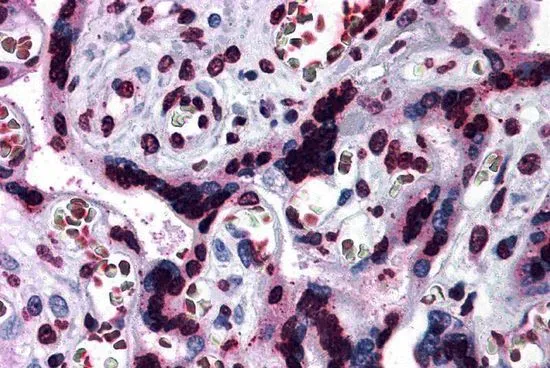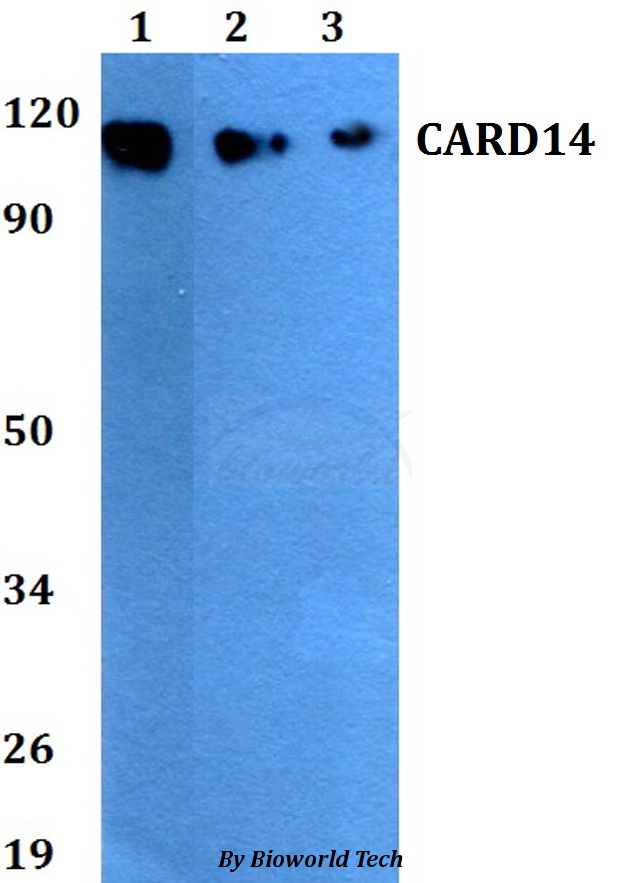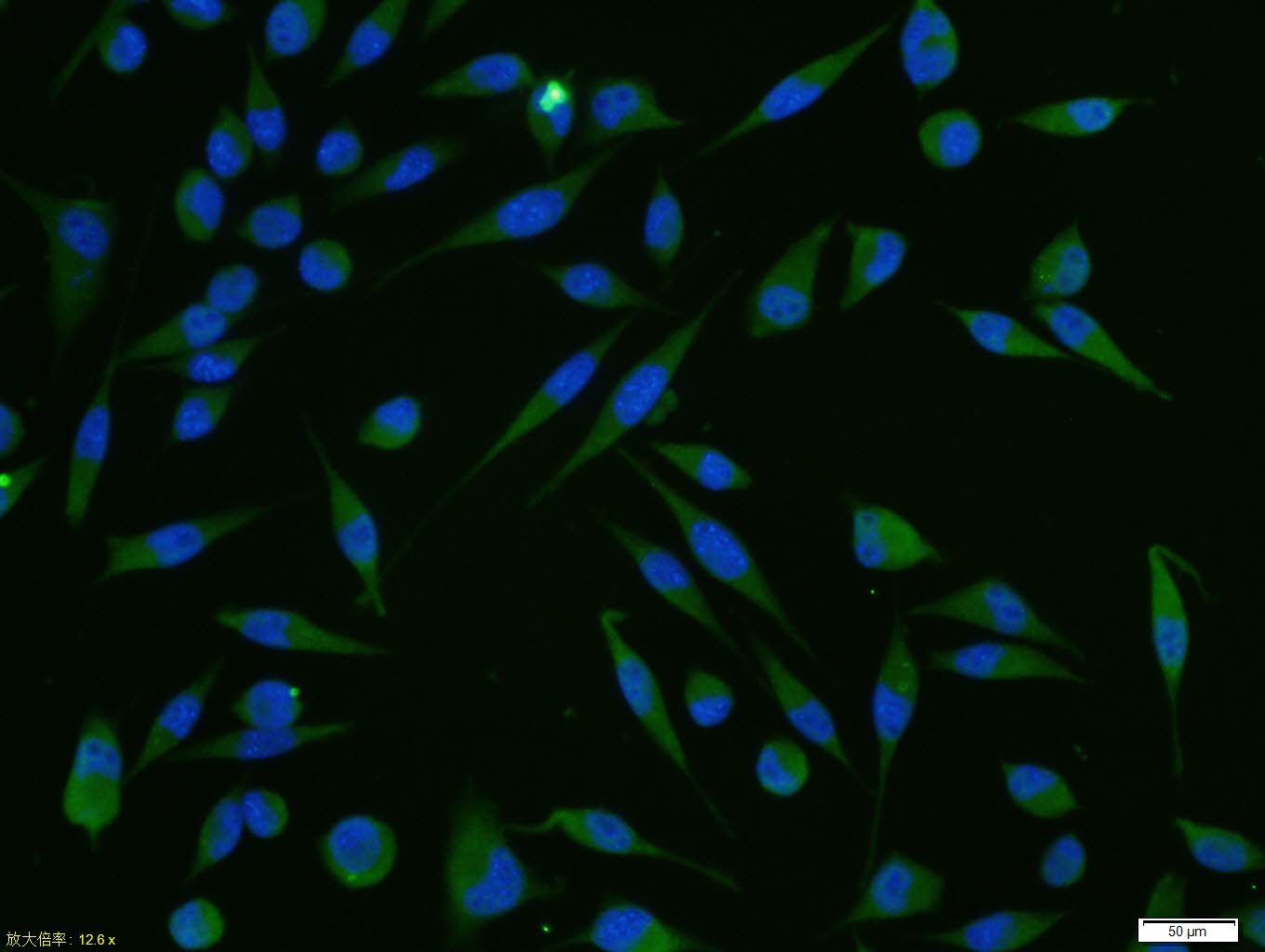
IHC-P analysis of human placenta tissue using GTX31281 CARD14 antibody. Working concentration : 5 μg/ml
CARD14 antibody
GTX31281
ApplicationsELISA, ImmunoHistoChemistry, ImmunoHistoChemistry Paraffin
Product group Antibodies
ReactivityHuman
TargetCARD14
Overview
- SupplierGeneTex
- Product NameCARD14 antibody
- Delivery Days Customer9
- Application Supplier NoteIHC-P: 5 microg/mL. *Optimal dilutions/concentrations should be determined by the researcher.Not tested in other applications.
- ApplicationsELISA, ImmunoHistoChemistry, ImmunoHistoChemistry Paraffin
- CertificationResearch Use Only
- ClonalityPolyclonal
- Concentration1 mg/ml
- ConjugateUnconjugated
- Gene ID79092
- Target nameCARD14
- Target descriptioncaspase recruitment domain family member 14
- Target synonymsBIMP2, CARMA2, PRP, PSORS2, PSS1, caspase recruitment domain-containing protein 14, CARD-containing MAGUK protein 2, bcl10-interacting maguk protein 2
- HostRabbit
- IsotypeIgG
- Protein IDQ9BXL6
- Protein NameCaspase recruitment domain-containing protein 14
- Scientific DescriptionThis gene encodes a caspase recruitment domain-containing protein that is a member of the membrane-associated guanylate kinase (MAGUK) family of proteins. Members of this protein family are scaffold proteins that are involved in a diverse array of cellular processes including cellular adhesion, signal transduction and cell polarity control. This protein has been shown to specifically interact with BCL10, a protein known to function as a positive regulator of cell apoptosis and NF-kappaB activation. Alternate splicing results in multiple transcript variants. [provided by RefSeq, Apr 2012]
- ReactivityHuman
- Storage Instruction-20°C or -80°C,2°C to 8°C
- UNSPSC41116161





